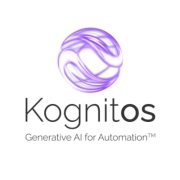Process Automation streamlines operations by reducing manual intervention, enhancing efficiency, and ensuring task consistency. It integrates seamlessly into existing workflows to optimize productivity.
Businesses utilize Process Automation to achieve high levels of accuracy in repetitive tasks. Automation solutions decrease workload pressure, allowing employees to focus on higher-value activities. This technology ensures quicker processing times and enhances overall performance within diverse organizational environments.
What are the key features of Process Automation?In manufacturing, automation ensures accuracy in assembly line operations. Healthcare benefits from automated scheduling and record-keeping, enhancing patient care. Financial services use automation for robust data processing and compliance management.
Organizations improve efficiency, maintain process consistency, and enable resource optimization with Process Automation. It provides the means to manage workloads more effectively and innovate within safe parameters.
| Product | Market Share (%) |
|---|---|
| Camunda | 15.8% |
| Temporal | 5.8% |
| Pega Platform | 5.2% |
| Other | 73.2% |




















































































An example of process automation is automated file transfers. File transfers can be incorporated into larger workflows that include tasks like encrypting and decrypting the files or entering the information they contain into an ERP system. Likewise, process automation can also be used to automate your database interaction processes without writing a line of code.
Implementing Process Automation can significantly improve efficiency by reducing manual effort and streamlining workflows. It allows you to eliminate repetitive tasks, which frees up valuable time for your team to focus on more strategic activities. Automation also reduces errors and accelerates process times, leading to faster and more accurate outcomes.
What are the key benefits of integrating Process Automation tools?Integrating Process Automation tools offers several key benefits including cost savings, increased productivity, enhanced accuracy, and improved compliance. These tools help in automating routine tasks, leading to cost reduction and resource optimization. They also provide data-driven insights that can help in decision-making while ensuring processes adhere to compliance standards.
Which industries benefit the most from Process Automation solutions?Industries such as healthcare, finance, manufacturing, retail, and logistics benefit substantially from Process Automation solutions. In healthcare, automation can streamline patient data management. In finance, it enhances transaction processing and compliance. Manufacturing uses it for supply chain optimization, while retail and logistics improve inventory and delivery operations.
How do I select the right Process Automation solution for my business?Selecting the right Process Automation solution involves understanding your business needs, process complexity, and scalability requirements. Evaluate solutions based on their ease of integration, user-friendliness, customization options, and support services. It's beneficial to choose a solution that offers analytics and reporting features to track performance and ROI.
How does Process Automation ensure data security and compliance?Process Automation solutions ensure data security and compliance through robust encryption, access controls, and audit trails. They are designed to comply with industry standards and regulations, offering features that manage permissions and monitor system activity. Regular updates and security patches help maintain the integrity and confidentiality of data.